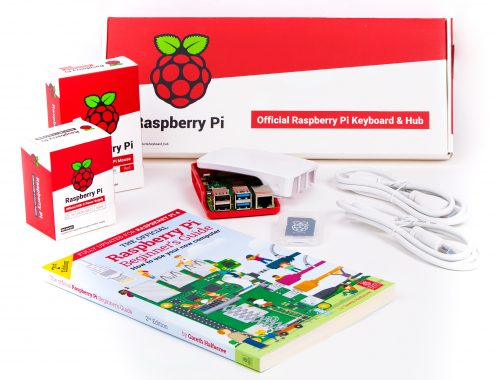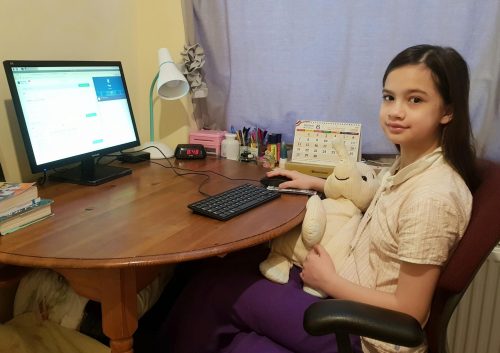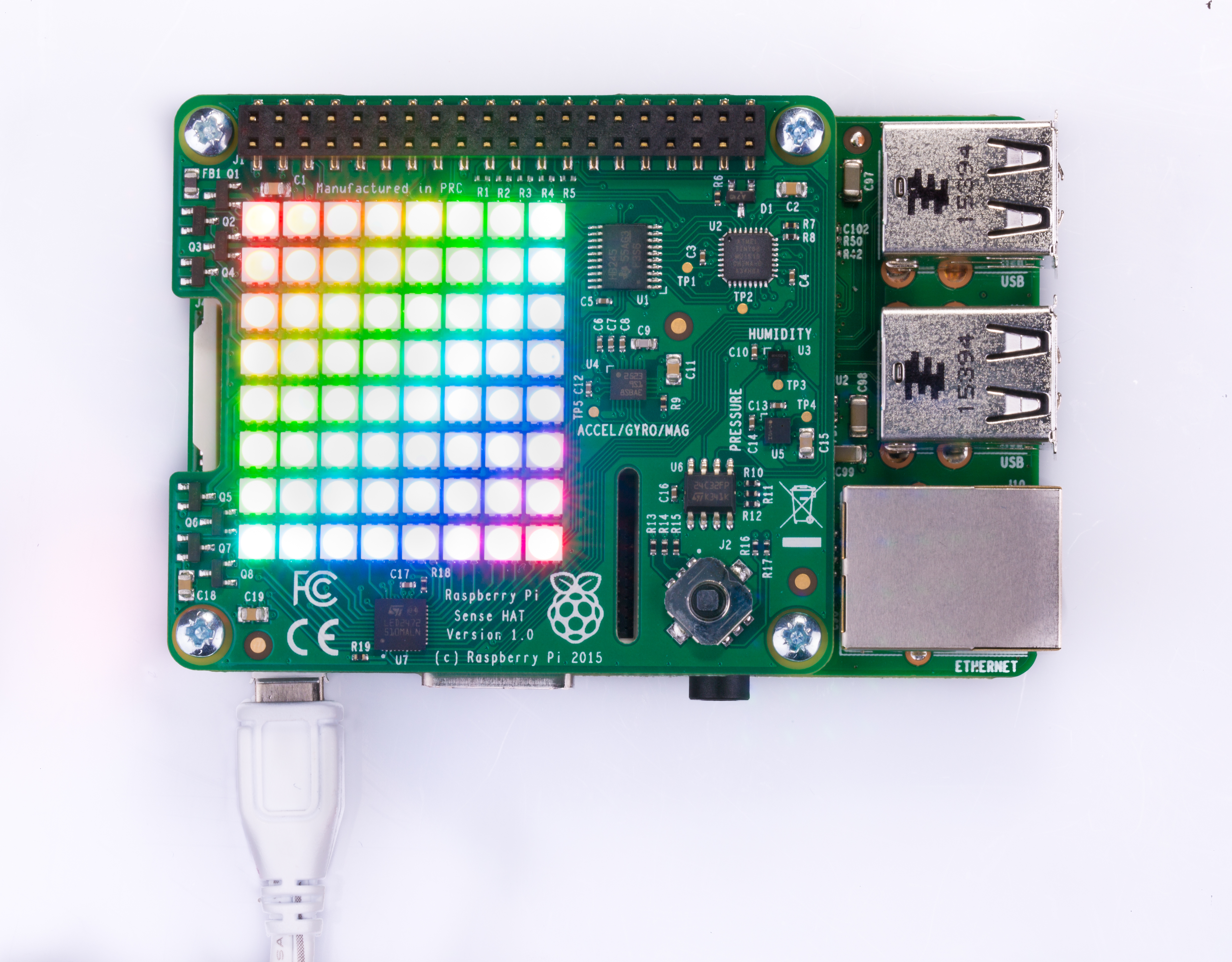Distributing Raspberry Pi computers to help families access education
The closure of schools has called attention to the digital divide, which sees poorer families struggling or unable to access education*. The coronavirus pandemic didn’t cause this divide, but it has highlighted it and its impact on many people in our society.
As our Foundation CEO Philip outlined back in April, part of our response to the pandemic and social distancing measures is to send free Raspberry Pi computers to students who currently lack the technology to complete their school work at home. Generously funded by the Bloomfield Trust, we have started to distribute Raspberry Pis in the UK.
Who is receiving Raspberry Pis?
Our approach for this initiative is to work with partner charities that help us identify the right recipients for the computers; we want them to go to young people who don’t have a suitable device for completing their schoolwork in their home.
The first partner charity we’ve been working with, whose team has been so patient as we’ve learned together how to do this, are the incredible School Home Support, a youth organisation working to improve school attendance, behaviour, and engagement in learning. With their help, we’ve so far distributed more than 120 Raspberry Pi 4 computers (with 2GB RAM), together with all the peripherals including a screen. School Home Support were also able to secure funding to provide high-speed internet access to the recipients’ home so students can reliably connect to their schools.

How are we helping them set up?
The young people set up their Raspberry Pis themselves, and we provide detailed instructions to guide them through this process. Most of the families have never used a computer like Raspberry Pi, so they need encouragement and support to get up and running. This is being provided both by the excellent School Home Support practitioners, and by Raspberry Pi team members, who answer questions when recipients get stuck.
“My mum was confused by the setup at first, but having a call to explain it really helped, and now we see how easy it is to set up and use.”
Raspberry Pi recipient
Recipients are already benefiting
Before receiving these computers, many of the young people only had occasional access to their parents’ phone to find out what school work had been set for them, and to complete it.
“It’s much easier to do my schoolwork now on the bigger screen. I feel like I’m learning more.”
Raspberry Pi recipient

We’re getting feedback that the Raspberry Pis help recipients focus on their work; they now have their own space to work in and more time to complete schoolwork, as they’re no longer rushing to share a device with other family members.
“I don’t always enjoy doing homework, but it’s better now that I have my own computer to do my work.”
Raspberry Pi recipient
Having a Raspberry Pi has increased the students’ motivation, and it has reduced stress — for parents as well as children:
“The Raspberry Pi kit came at a time when I really needed it. Up until that point, T had to do his homework and access the school’s home learning using my phone, which was not very practical at all. This was made worse by the fact that he had to share my phone with his sister, which ended up causing a lot of arguments. He was so pleased to receive a computer he could use. At first he had a lot of fun playing different games on it, and I was surprised about how well he was able to understand and help me set it up. The only negative was that he enjoyed playing games on it a bit too much! I feel relieved that he has his own computer which he can use. It was very stressful and frustrating having to use my mobile phone. There were times when T would be using my phone to do his work and he would be interrupted if I got a phone call, which meant that he would have to log in again, and sometimes would lose his work.”
Parent of a Raspberry Pi recipient
What are we doing next?
It’s wonderful to hear stories like this of how our computers make a difference in people’s lives. We’re still learning lots: while many families have been able to get up and running easily and quickly, others are still overwhelmed because they are unfamiliar with the device. We know we need to do more to build their confidence.
As we’re learning, we’re also talking to our next charity partners in the UK to help us identify more recipients, and to help the recipients get set up on their new Raspberry Pi devices.
If you are part of an organisation that could partner with us to support families in need of access to technology, please email us at stayconnected@raspberrypi.org. Be aware that your organisation would need to fund the families’ internet access.
* The impact of the digital divide on students has for example been reported on by BCS, the Chartered Institute for IT and by the Institute for Fiscal Studies.





17 comments
arpit
A very good initiative ,can this venture be implemented outside UK Borders as an overseas grant to support children deprived from schools due to lock down in lieu of COVID 19?
Jack Chaney
The original idea is bearing fruit! The inexpensive solution is a brilliant means to provide access for remote learning. Still need to create an inexpensive solution for group video communication. Camera, yes, video, yes, sound, yes, voice, big no.
Sam Colvin
try the apple EarPods with the aux connecter, or better yet bluetooth
crumble
there are cheap USB headsets or webcams with a microphone. The headsets are easier to mute and have less problems with acoustic feedback and multiple meetings in the same room.
W. H. Heydt
This is–essentially–what I’ve partially set up for my 12-year-old grandson, right down to using a Pi4B4. Different keyboard (Logitech K-120), different mouse (Logitech Marbleman trackball), and a 19″ 1280×1024 monitor. Still getting bits and pieces together to support the local district’s choice of videoconferencing (Google Teams? Google *something*).
His headset has a 4-pole 3.5mm connector, but one can get USB adapters for that. Looking to use a PiCamera v2 to go with.
Thanks for the article. I forwarded a link to one of the local district “resource” people. Not much hope anything will come of it, but it might clue them in that Chromebooks are Not The Answer…at least not necessarily.
StevenP
Great fan that I am of the Raspberry Pi, I must say that cheap Chromebooks have a lot going for them – my daughter has been using ours for schoolwork without any difficulty – Skype works great with the built-in webcam, Microsoft Teams is also fine.
As with all Chromebooks, there is no setup, installation or IT maintenance needed and the 14 inch Levono Chromebook S340 only costs 217 Euro…
StevenP
Sorry – I meant ‘Lenovo Chromebook S340 Laptop ‘
Anil
This is very good for people who can’t afford PC and I am really thankful for Pi foundation that because of you I could start my website ,learn new think in the pi (3)
.Hope it helps who are in need .
EMMA HARRISON
I’m wondering if you need tutors, having previously worked for ‘Catch 22’. Please get in touch, if you do.
sk maltare
i m in New Delhi , India. and using my own pi4 and zero too. let me know if i can help in some way.
Chris Meggs
Congratulations!
I have developed a series of Pi machines to perform various basic functions, including videoconference capabilities. What has held back penetration of the market has been internet provision which you seem to have cracked. Well done!
Firdosh Diakus
Hi Chris where do we find the work you have done i.e videoconferencing etc on the Pi ?
sanjay
can you apply this scheme for india
Vijay Amirtharaj Xavier
I simply love the raspberry Pi 4 and I have bought last year with 2gb model, it works well and I am newbie for raspberry Pi, I have installed raspian is as well android 9 on both works well. Now I would need to try with 8gb model for development of software like android studio with dart, php etc I hope this works out well for developers with cheaper investment alternative to laptop or desktop pc. I am looking for an Idea to do the business with raspberry Pi in india for educational purpose as well for business owners.
Please through some light on it.
Thanks
Vivek
I am In college. Is it helpful to me or not?
gr8bkset
Yes! I’ve been able to do everything on my RPi4 4GB that I can do on my laptop. I prefer the Pi plugged into my 55 inch TV instead of the laptop. Best, yet, I can give it different personalities with various OS images.
Mikael Bonnier
The official plastic case for the Raspberry Pi 4 B makes the SOC too hot and causes it to throttle. You should really stop selling it and design an official cooling case (that lets WiFi work).